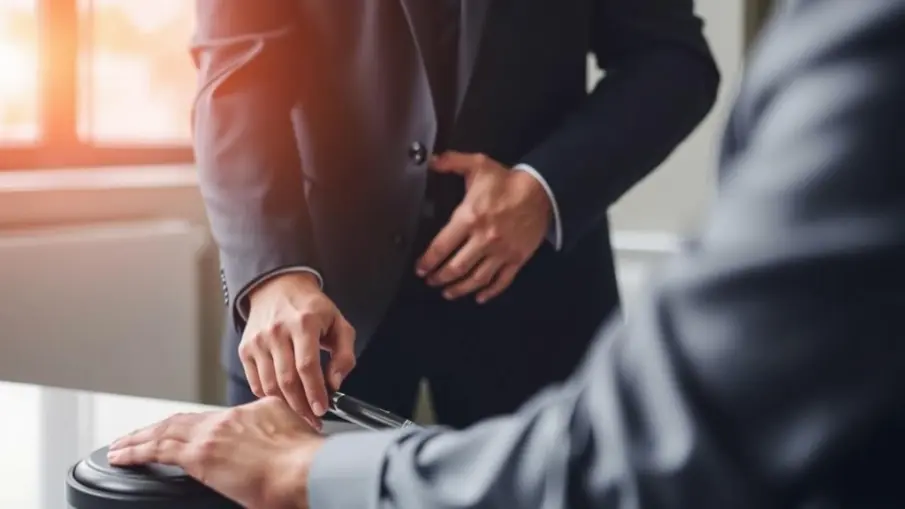What Happens If a Personal Injury Case Involves Criminal Charges?

Despite being two separate areas of the legal system, criminal law and personal injury law can have important intersections. What Happens If a Personal Injury Case Involves Criminal Charges? Personal injury cases usually start when someone gets hurt because of the carelessness or deliberate actions of another person.
Understanding the Basics of Both Legal Areas
Financial compensation for losses like medical bills, missed income, and pain and suffering is frequently sought in these cases. The government prosecutes people for acts that are considered harmful or dangerous, like assault, theft, or driving while intoxicated, under criminal law, which deals with offenses against the state or society. Criminal charges in personal injury cases create a complicated legal environment. For example, if someone is hurt in a car accident brought on by a drunk driver, the driver may be charged with DUI and be sued for damages in a personal injury case. This dichotomy may make the legal process more difficult because the results of the criminal case may affect the personal injury case & vice versa.
For both plaintiffs and defendants navigating their respective legal challenges, it is essential to comprehend this intersection. When a defendant is charged with both a crime and a personal injury, the repercussions can be serious and complex. If found guilty, the defendant in a criminal case may be subject to fines, probation, or even jail time. These consequences may harm their reputation and future employment opportunities, among other long-term repercussions on their personal and professional lives.
A criminal conviction can also be a powerful piece of evidence in a personal injury case, increasing the plaintiff's chances of being held liable and receiving more money.
The Importance of Skilled Legal Representation
To properly handle their circumstances, plaintiffs must thus seek legal representation from experienced personal injury lawyer skilled in both criminal and personal injury law. A criminal charge has the potential to significantly alter the course of a personal injury case. Possibility of a presumption of liability is among the most important consequences. In a civil case, a defendant's conviction for a crime connected to the incident that caused the injury can often be used as evidence.
If a defendant is convicted of driving under the influence,, for instance, the conviction may support the plaintiff's claim in a later personal injury case for liability. Also, the personal injury case may be impacted by the criminal proceedings' timing. Frequently, plaintiffs decide to postpone their civil case until after the criminal trial is over due to potential Fifth Amendment issues. By using this tactic, they can take advantage of any conclusions drawn from the criminal case that might improve their case in civil court.
It may, however, also cause their claims to be resolved more slowly & their injury compensation to be delayed. Therefore, it is essential for plaintiffs seeking justice and recompense to comprehend the interactions between these two legal procedures.
A skilled personal injury can also obtain restitution for special damages in the criminal case in excess of what is recovered in the personal injury case. This requires special expertise. Therefore, you need to consider hiring a personal injury lawyer who has experience in both areas of law.
Gathering Strong Evidence for Both Sides
It takes careful preparation and strategic decision-making to navigate the legal system in a personal injury case involving criminal charges. Each legal framework has rights and obligations that both plaintiffs and defendants need to understand. It is imperative for plaintiffs to collect thorough evidence to back up their allegations while keeping in mind how continuing criminal proceedings might impact their case.
This entails recording witness accounts, medical records, and any pertinent police reports. It is crucial for defendants to work with a lawyer who focuses on both criminal law and personal injury. Having such legal counsel can help guarantee that their rights are upheld during both procedures.
Coordinating a Unified Legal Strategy
The lawyer can offer guidance on how to handle each case without endangering the others, especially when it comes to remarks made in court or during depositions. It's also crucial to comprehend procedural timelines because delays in one case can affect others, so prompt action is necessary.
Effective strategies are essential for both parties when handling a personal injury case and concurrent criminal charges. One important tactic for plaintiffs is to exercise patience and wait for the criminal case to finish before launching a vigorous civil action. This strategy may help them make stronger claims based on the results of the criminal trial and offer insightful information about the events leading up to the incident.
Final Thoughts on Navigating Dual Legal Cases
It is essential to comprehend the methods used to collect and present evidence in both situations in order to achieve positive results. It is necessary to navigate a complicated legal system while keeping recovery and accountability in mind when seeking justice and compensation in personal injury cases involving criminal allegations.
In the end, attaining justice in these interconnected cases depends on comprehending legal rights, assembling strong evidence, & negotiating procedural complexities under the wise counsel of legal experts with backgrounds in both areas.
More to Read:
Previous Posts:





